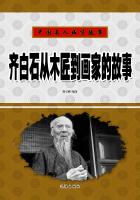George Gordon Byron
His terror of getting fat was so great that he reduced his diet1 to the point of absolute starvation. When he added to his weight, even standing was painful, so he resolved to keep down to eleven stone or2 shoot himself. He said everything he swallowed was instantly converted to tallow and deposited on his ribs. He was the only human being I ever met with who had sufficient self-restraint3 and resolution to resist his proneness4 to fatten. As he was always hungry, his merit was the greater. Occasionally he relaxed his vigilance, when he swelled apace. I remember one of his old friends saying, “Byron, how well you are looking!” If he had stopped there it had been well, but when he added, “You are getting fat,” Byron’s brow reddened, and his eyes flashed— “Do you call getting fat looking well, as if I were a hog?” and turning to me he muttered, “The beast, I can hardly keep my hands off5 him.”
— E. J. Trelawney
absolute adj. 完全的
stone n. 英石(重量单位)
convert v. 改变
tallow n. 油脂
deposit v. 使沉积
self-restraint n. 自我克制
resolution n. 决心
proneness n. 倾向;
prone adj. 易于……的
merit n. 功绩
vigilance n. 警惕性
apace adv. 迅速地
中译 肥胖(拜伦)
他对发胖非常恐惧,以致把饮食量减少到完全挨饿的地步。当体重有所增加时,哪怕站着他也会痛苦不堪,所以他决意要把体重降到十一英石(1英石≈6.35千克),否则就开枪了结自己。他说他所吞下的全部食物都会马上变成脂肪,储存在肋骨上。要是有谁有足够的自我克制力并决心抵御不断肥胖,那他就是我遇见到的唯一一个有自制力的人了。由于他总是处于饥饿状态,他减肥的效果更好了。偶尔,他放松警惕,这时他就会很快发胖。我记得他的一位老朋友说:“拜伦,你看上去真不错!”如果他的话到此为止就好了,可他接着说,“你在发胖了。”这时,拜伦的脸色变得通红,眼睛里闪着光,说:“你把发胖也说成好看,看来我就像头公猪啦?”说罢转过身来对我嘟哝道,“这畜生,我可不会放过他。”
——〔英〕特里劳尼
原来如此!
George Gordon Byron(拜伦,1788-1824),英国诗人,诗路宽广,擅长讽刺,在投身希腊民族独立战争中病逝,代表作有《恰尔德·哈罗尔德游记》(Childe Harold’s Pilgrimage, 1812)、《唐璜》(Don Juan, 1819)等。
这则轶事正好是现代不少为爱美而节食减肥的人士的写照。过分节食往往会使人患上厌食症(anorexia)或暴食症(bulimia)。
本文作者Edward John Trelawney(特里劳尼,1792-1881),是英国作家和冒险家,与雪莱和拜伦过从甚密,曾随拜伦投身希腊民族独立斗争。
增值英语
1 he reduced his diet
reduce one’s diet 解作“节食”;同义词组为 be dieting 或 be on a diet:
She reduces her diet in order to look slim. 她为了显得苗条而节食。
She is dieting in order to keep fit. 她为了保持体型而节食。
She is on a diet in order to slim down. 她为了变瘦些而节食。
2 to keep down...or shoot himself
句式 or 否则,要不然,有时用 or else,或用 otherwise 代替:
Wear your overcoat or you’ll be cold. 穿上你的大衣,否则你会冷的。
Now I must go or /, otherwise I’ll be late for class. 现在我该走了,不然上课会迟到的。
3 had sufficient self-restraint
self-restraint 自我克制 (= self-control):
He exercises great self-restraint in the face of provocation. 他面对挑衅尽力克制着自己。
She handles the situation with self-restraint. 她克制着自己应付局面。
4 ...to resist his proneness to fatten.
句式 proneness n. to / prone (adj.) to + sth / + 不定式,解作“倾向于某(坏)事物”“易受某(坏)事物影响的特性”,形容词较常用:
That child is prone to lose his temper whenever he can’t get what he wants. 那小孩每当得不到想要的东西时,就倾向于发脾气。
Infants are more prone to virus infections. 婴儿较易受病毒感染。
A person who has a proneness to steal things is called a kleptomaniac. 倾向于偷窃的人被称为“有盗窃癖的人”。
注意 -prone 也可以和其他很少部分名词合成复合形容词,如 accident-prone(易生意外的)、injury-prone(易受损伤的):
This part of the highway is particularly accident-prone. 这部分的高速公路特别易生意外。
Old people are injury-prone. 老人家易受损伤。
5 keep my hands off him
句式 keep one’s hands off sth 不碰,不插手某事:
Keep your hands off my precious paintings while I am away.
我不在家的时候,你别碰我珍贵的油画。
Big business organizations cannot keep their hands off profitable small firms. 大企业对盈利好的小企业总想插手。
注意 反义词语为 to have a finger in every pie,即对什么都想插手、染指。
名言
Adversity is the first path to truth.
— Lord Byron
逆境是通向真理的第一条道路。——拜伦












